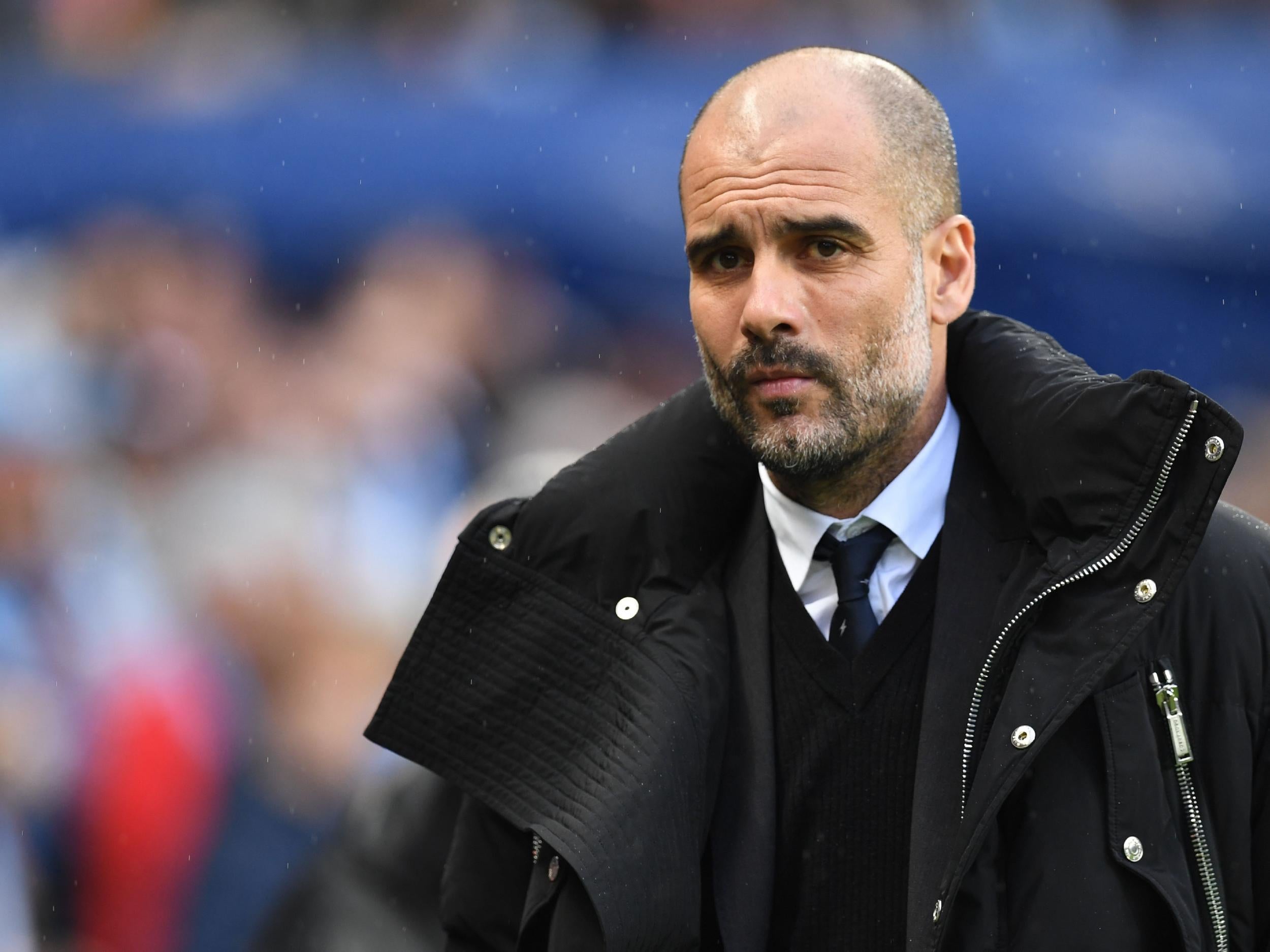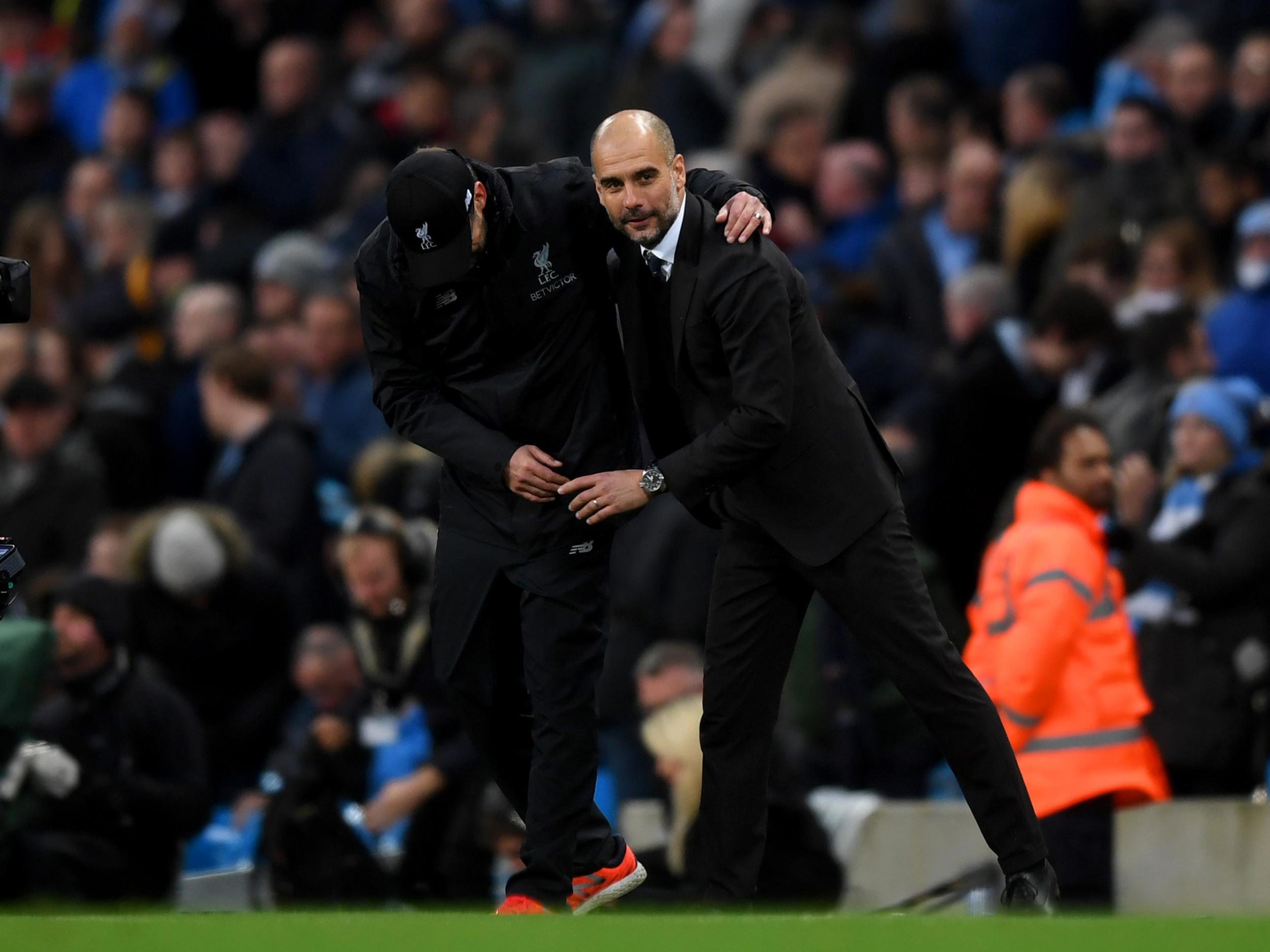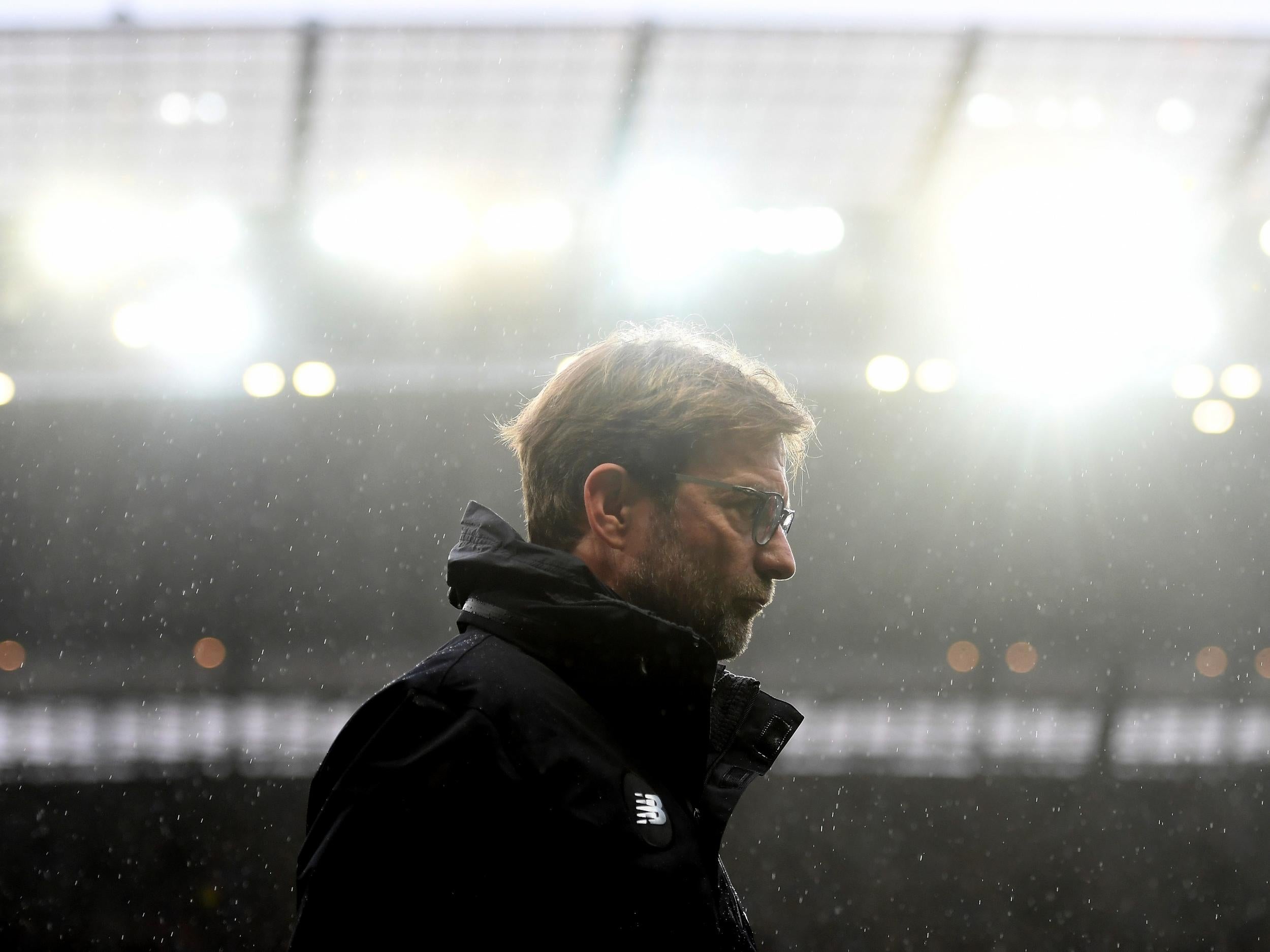It's understandable that Pep Guardiola called a draw against Liverpool one of the proudest results of his career
Two-time Champions League winner Guardiola should not be mocked for calling the Liverpool draw one of the finest results of his career — it was a hugely symbolic result

Your support helps us to tell the story
From reproductive rights to climate change to Big Tech, The Independent is on the ground when the story is developing. Whether it's investigating the financials of Elon Musk's pro-Trump PAC or producing our latest documentary, 'The A Word', which shines a light on the American women fighting for reproductive rights, we know how important it is to parse out the facts from the messaging.
At such a critical moment in US history, we need reporters on the ground. Your donation allows us to keep sending journalists to speak to both sides of the story.
The Independent is trusted by Americans across the entire political spectrum. And unlike many other quality news outlets, we choose not to lock Americans out of our reporting and analysis with paywalls. We believe quality journalism should be available to everyone, paid for by those who can afford it.
Your support makes all the difference.As can be seen from some rather prickly press conferences from his time in the Premier League so far, Pep Guardiola can be very difficult to second-guess. He doesn’t just look at the game differently, it seems, but also some of the elements around the game.
Take his overriding take-away from the 1-1 draw at home to Liverpool. Manchester City showed some impressive resilience and, even if they were again wasteful against a top side and should have won, they could take satisfaction from the performance. Guardiola went much further than that, though, to quite a remarkable extent.
He described it as one of the proudest days of his career, and apparently without sarcasm. His opposite number Jurgen Klopp, who is probably that easier to read in that since given how overtly emotional he is - either beaming widely and laughing or, less regularly, raging at officials - quipped: “He is Spanish. They are more emotional than the Germans.”
Even allowing for that, and the fact Guardiola would very much consider himself Catalan, that level of pride should still sound ludicrous for someone who has won as much as he has, especially two Champions Leagues with one of the finals - in 2011 - offering a truly transcendent performance. There was at least some logic to his comments, though.
Because — since one of the main storylines of this season has been how a Guardiola team looks so beatable for pretty much the first time in his career, and how he is suffering so many lows as never before — it was essential that he follow one of the worst lows with a convincing response.
Consider, after all, what defeat here would have represented; how symbolic it would have been. Guardiola already finds himself outside the top two of a table at this point for the first time in his career. The midweek defeat to Monaco then represented the first time he has gone out of the Champions League before the semi-finals, and opens the very real possibility he could also fail to win a trophy in a season for the first time in his career.
And then came Liverpool. Had City lost that game, it would also have been the first time he had lost six league games in a single season, and also been the first time he lost to one club twice in a single league season. In other words, he would have been comprehensively bested by a counterpart, offering further evidence he’s not quite at the peak of management at the moment.
That didn’t happen, though. City responded, got the goal, and the draw. It did mean a lot for Guardiola in that sense. These are new situations for him, so it is only natural they offer up some new emotions. There was the alternative symbolism of it too. Rather than the result emphasising his difficulties, the response instead reflects that, yes, while he has had problems, they are fixable. There is more to come. Some of City’s play was also genuinely sensational, and gloriously intricate, but clearly not yet the finished product.
Guardiola being Guardiola, though, he was looking at it in terms of the patterns of the performance rather than the superficial symbolism of the score. He was looking at in terms of whether his team are following his idea.

“Why? Because we lived a tough two days,” Guardiola said. “So, after being out for the Champions League, what happened in Monaco in the first half, we were what we are in the second half [against Liverpool], again and again and again, how many chances we miss…”
That is why this was such an important result for Guardiola personally, even if he obviously had wider concerns. They showed ‘what they are’ or, more relevantly, something closer to what he wants them to be.
The irony is that it might have been more important for Liverpool in general, given that they can now drop out of the top four if both Manchester United and Arsenal win their games in hand. There is also the fact that Sunday's match was Liverpool’s last of the season against one of the other top six. That would usually be a huge bonus for a side, but not necessarily for Klopp.

From all 10 of their fixtures against their direct levels at the top end, Liverpool have an average of two points per game. From their other 19 matches so far against the ‘bottom 14’? The average is 1.89.
That is why, in an odd way, only drawing at City yesterday mightn’t have been as positive as it should usually be portrayed. And even Klopp seemed to have to check himself when he said “you cannot run around [angry] after a draw at Manchester City”.
His side have to learn to develop the consistency they have found against the top six, given that they should reasonably be performing better than that against the rest.
One part of it is certainly to be proud of.
Join our commenting forum
Join thought-provoking conversations, follow other Independent readers and see their replies
Comments